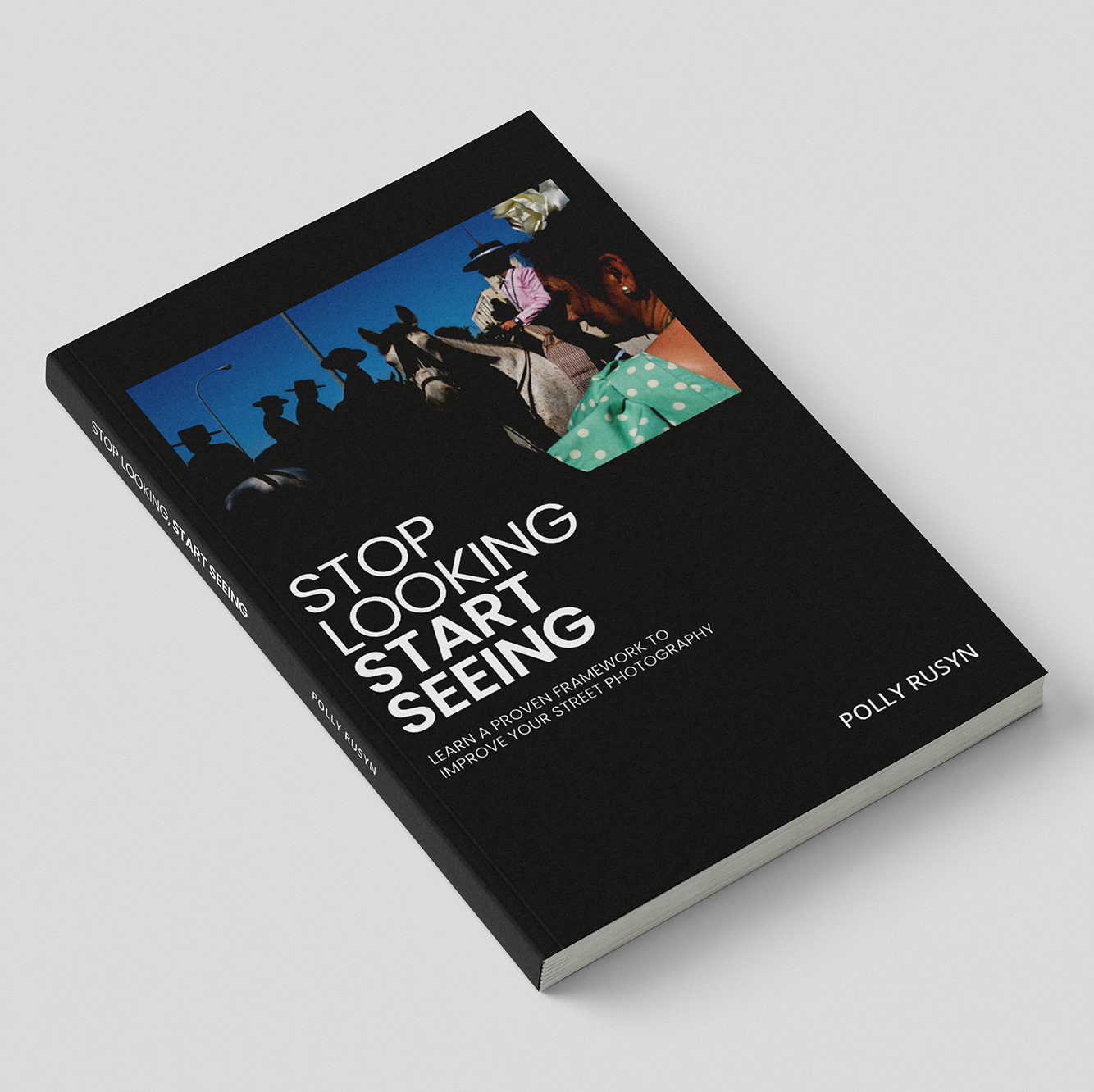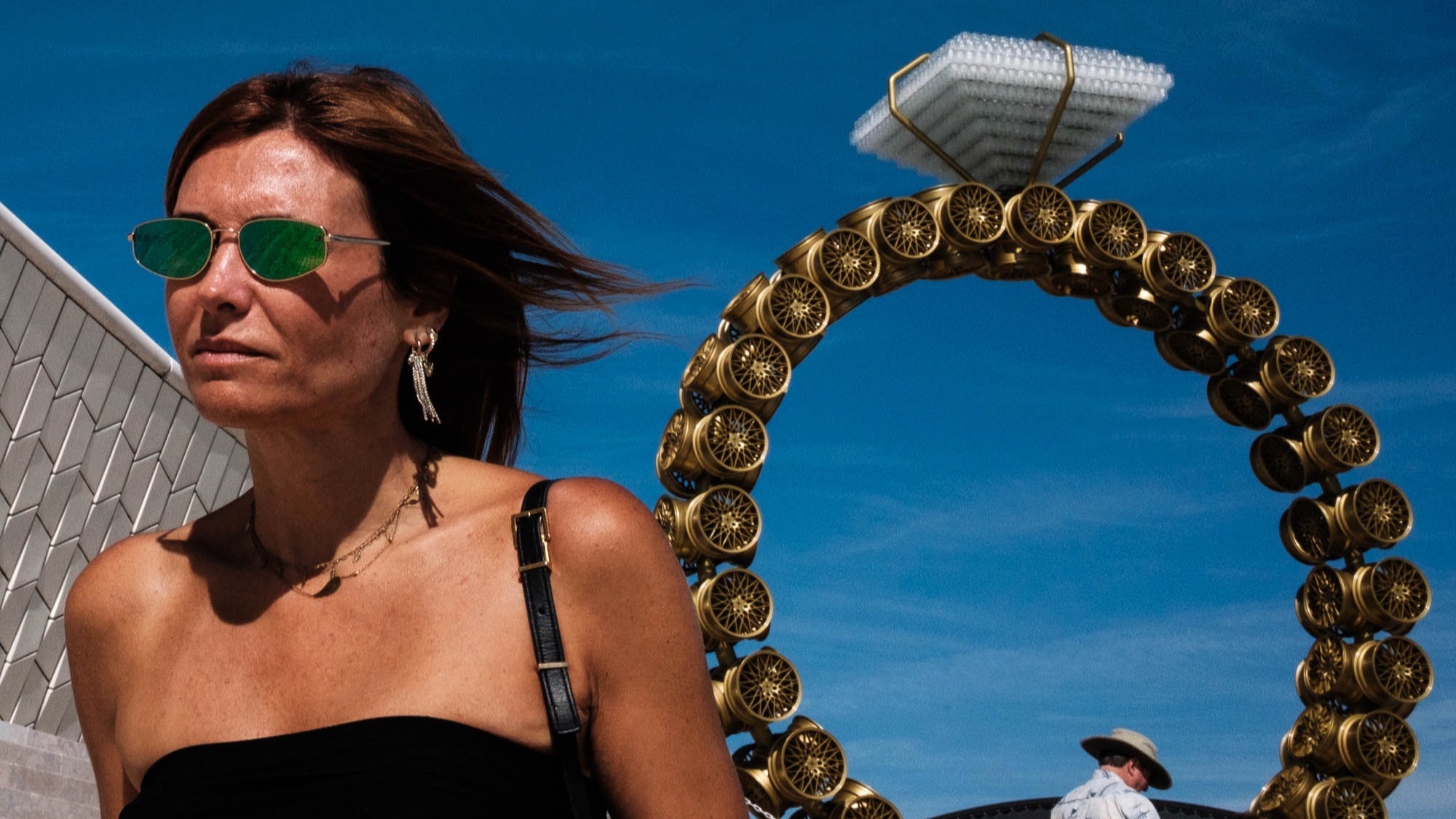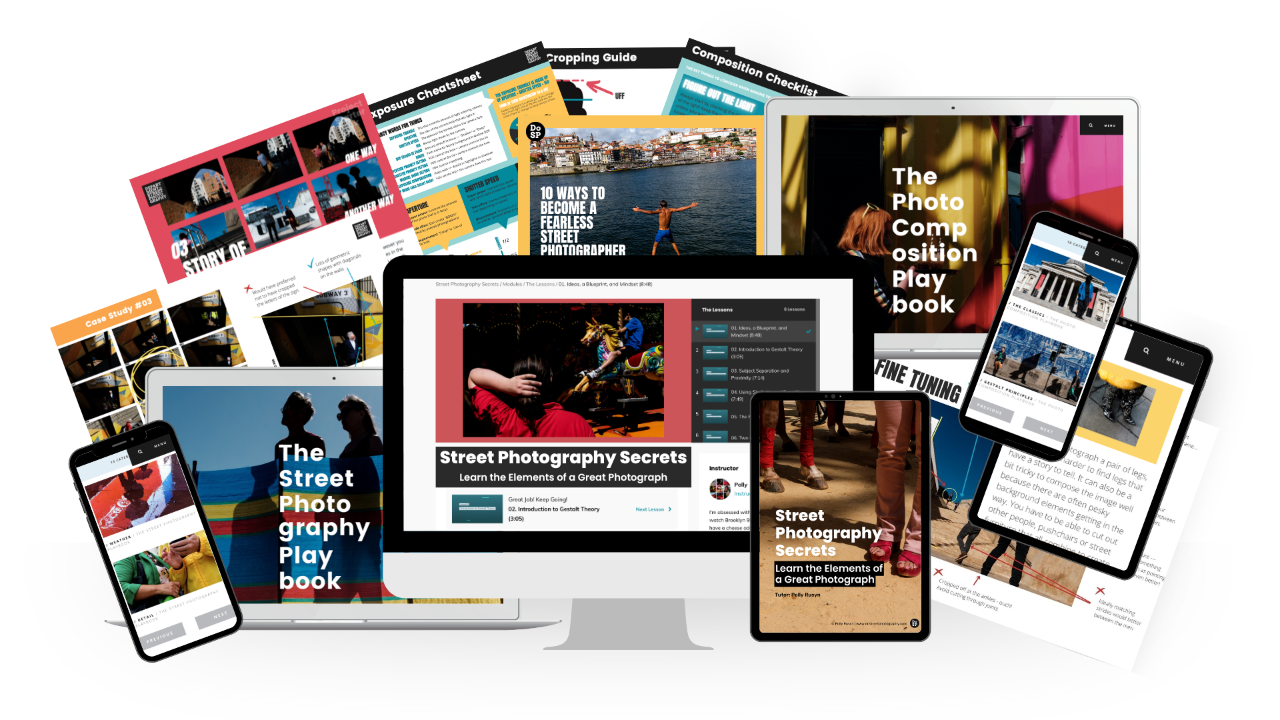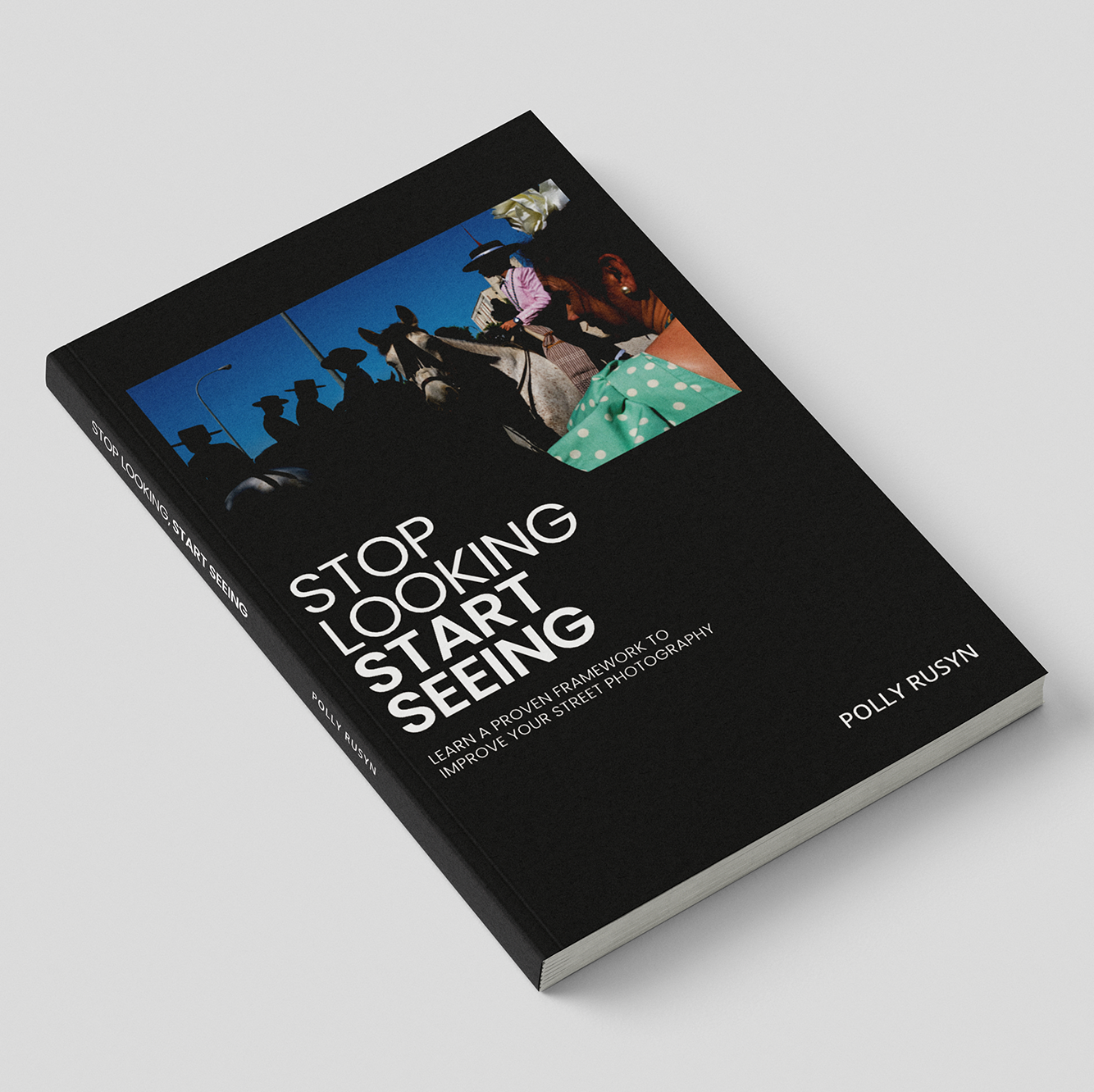The Law and Ethics of Street Photography
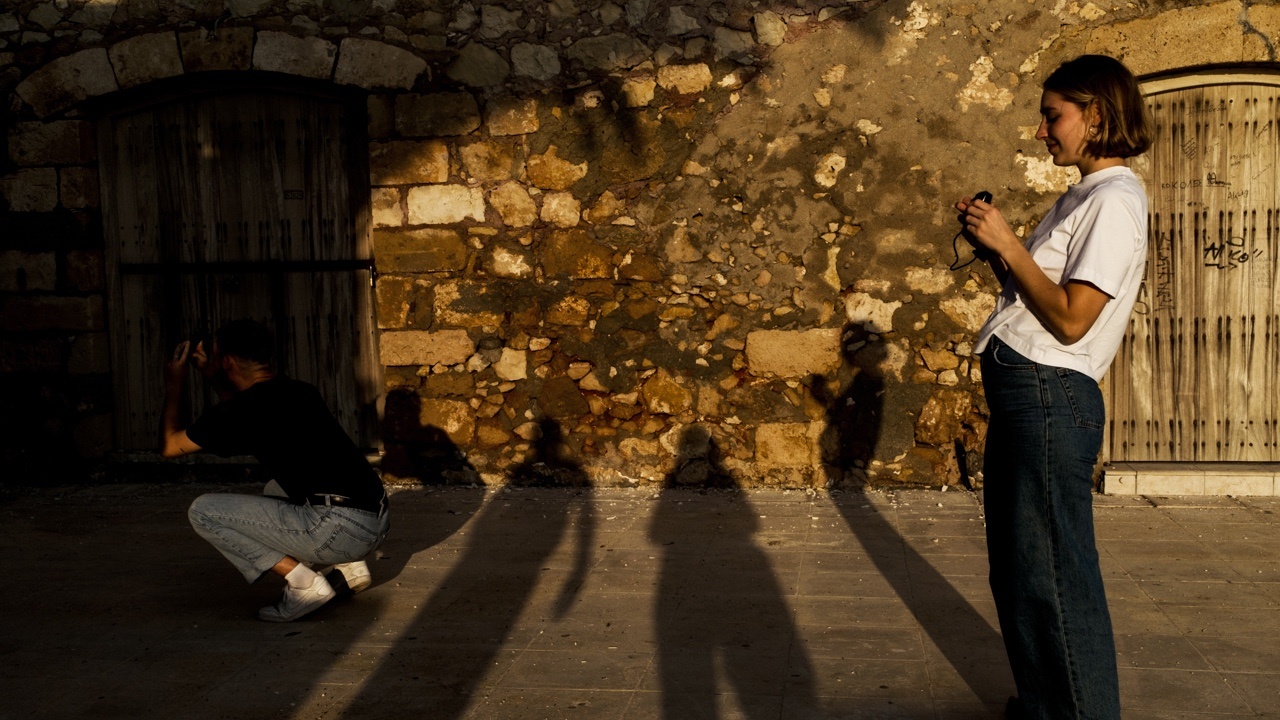
Not one street photographer I know feels they are doing anything wrong, yet I see comments on social media from other photographers (who are not street photographers) as well as non-photographers claiming it is wrong to take a photo of someone without their permission. Is it wrong? After all it is legal (depending where you are of course). But just because something is legal it doesn't make it right. Right? Or wrong?
I am going to dive into to these topics:
1. Let's talk legalities (before we go any further)
2. To be ethical or not to be ethical?
3. My personal street photography ethics
"The subject matter is so much more important than the photographer." — Gordon Parks
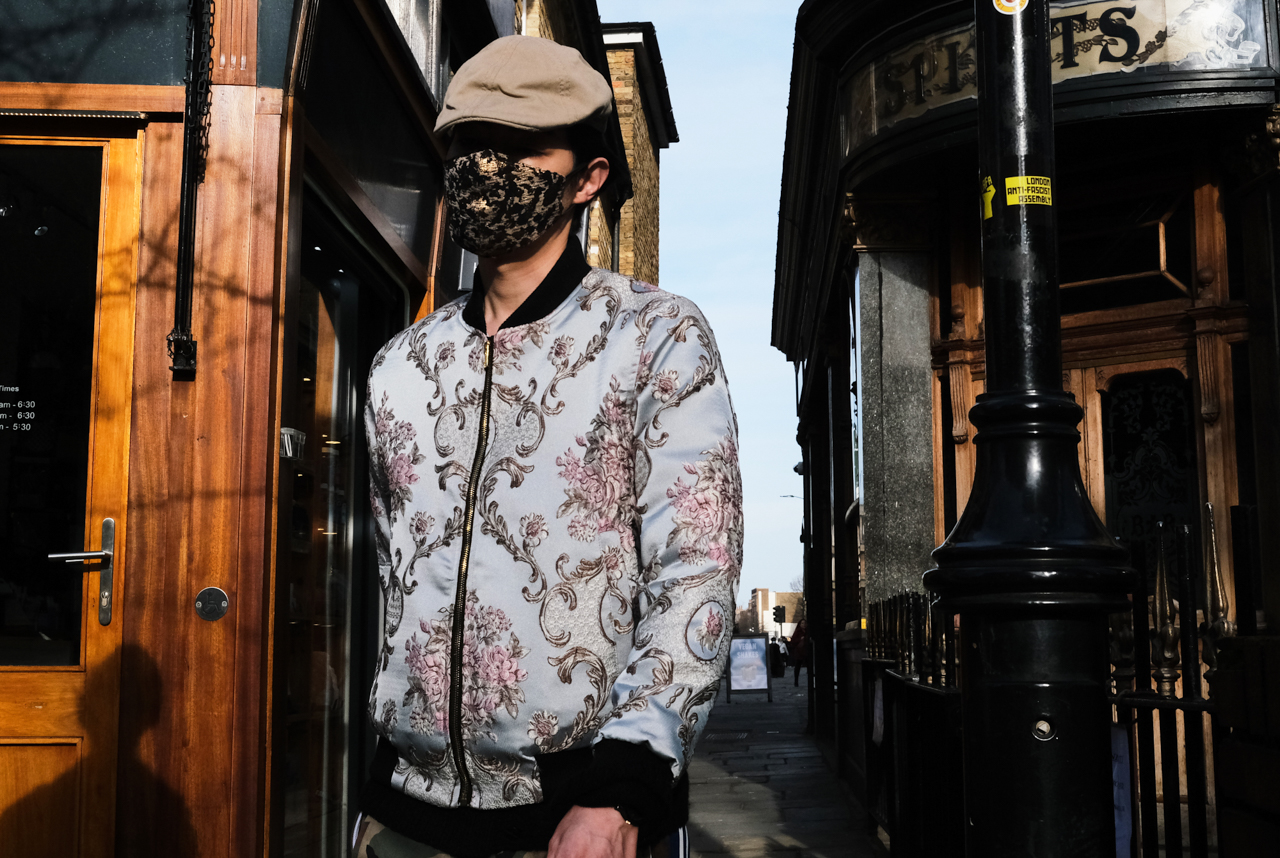
1. LET'S TALK LEGALITIES
Privacy Laws
These vary from country to country, so it's important to do your research if you are going to do some street photography, so that you don't get in a pickle - France and Germany have very strict laws, for example! Whereas in the UK (where I am currently based) it is completely legal to photograph members of the public in public places, including on public transport. Although you should probably try to avoid Police officers, security personnel, and government buildings, etc., wherever you are; whilst also being mindful that some locations that appear public are actually private property so a security guard could legitimately ask you to move along. And in my view, if someone does try to move you along it's best to attempt to explain what you are doing, and if that doesn't work simply move along. You are a street photographer — so there are photos waiting for you everywhere, which includes somewhere else!
The Institute of Photography (a UK based institution) comprehensively outlines your rights as a photographer, and states:
"It is your right as a photographer to take a photo of whatever subject you like, providing your subject is not in a place where they might reasonably expect privacy [in their own home for example].”
There is always a way to work around prohibitive laws though, and that's to get creative in how you photograph people. You can maintain their anonymity by photographing silhouettes, shadows, random limbs, photographing them from behind (as long as they are still interesting!), cropping off heads and shoulders, or obscuring faces — you know that classic street trope where a head has been replaced by a book jacket with a face on it, or a pig's head in a butchers! And of course in some cases your human subject is simply incidental to the scene — a small unidentifiable figure that provides scale for architectural minimalism... if that's your thing.
Model Releases
Street photographers do not need to obtain model releases, no matter what someone who has "caught" you photographing them might say. Model releases are necessary though if your plan is to use the image for commercial use ie advertising, in which case you should already know that, or at least the agency who has hired you should have advised you. Ideally it's best to be unobtrusive on the street so that you are able to photograph as if you are wearing a cloak of invisibility! But this raises one of the issues for critics of street photographers — this so-called "sneaky" approach. More on that coming up...
Handling Objections
Every now and again you could be told off for taking someone's photograph without their permission. The worst encounter I've personally experienced was when someone wagged their finger aggressively at me; but I know of other street photographers who have been physically threatened, or shouted at. Yes, you could argue you are within the law, and that the picture belongs to you, the photographer. You could even say, "Nuh nuh nuh-nuh nuh" as you strut away! And I regularly come across street photographers on social media defending themselves against upsetting someone by claiming to be within the law.
Personally, I believe the most important thing is to diffuse any confrontational situation as soon as possible - stay calm, introduce yourself, explain what you are doing, and comply if the person you photographed still wants the photo to be deleted. Tell them something along the lines of: “I’m a street photographer and I’m just photographing things and people I find interesting.” Add a little sugar with a compliment such as, “I loved how the light looked on you”, or “your hat is so stylish I couldn’t resist”. By now you should no longer be stranger-with-a-camera-danger, but if someone is still not happy and wants you to bin the shot — just do it! Do you want to look at a photo and remember how ruined someone’s day? It’s not worth it.
Respecting another person's wishes is more important than whether it's legal or not, so I would delete if someone still wanted me too after listening to my explanation. If it was a really great shot I would, of course, be gutted, but equally I would not want the memory of an altercation to be triggered every time I saw the photo. In addition I would like to think that if I objected to my photo being taken then someone would respect that. Which leads me to the ethics section...
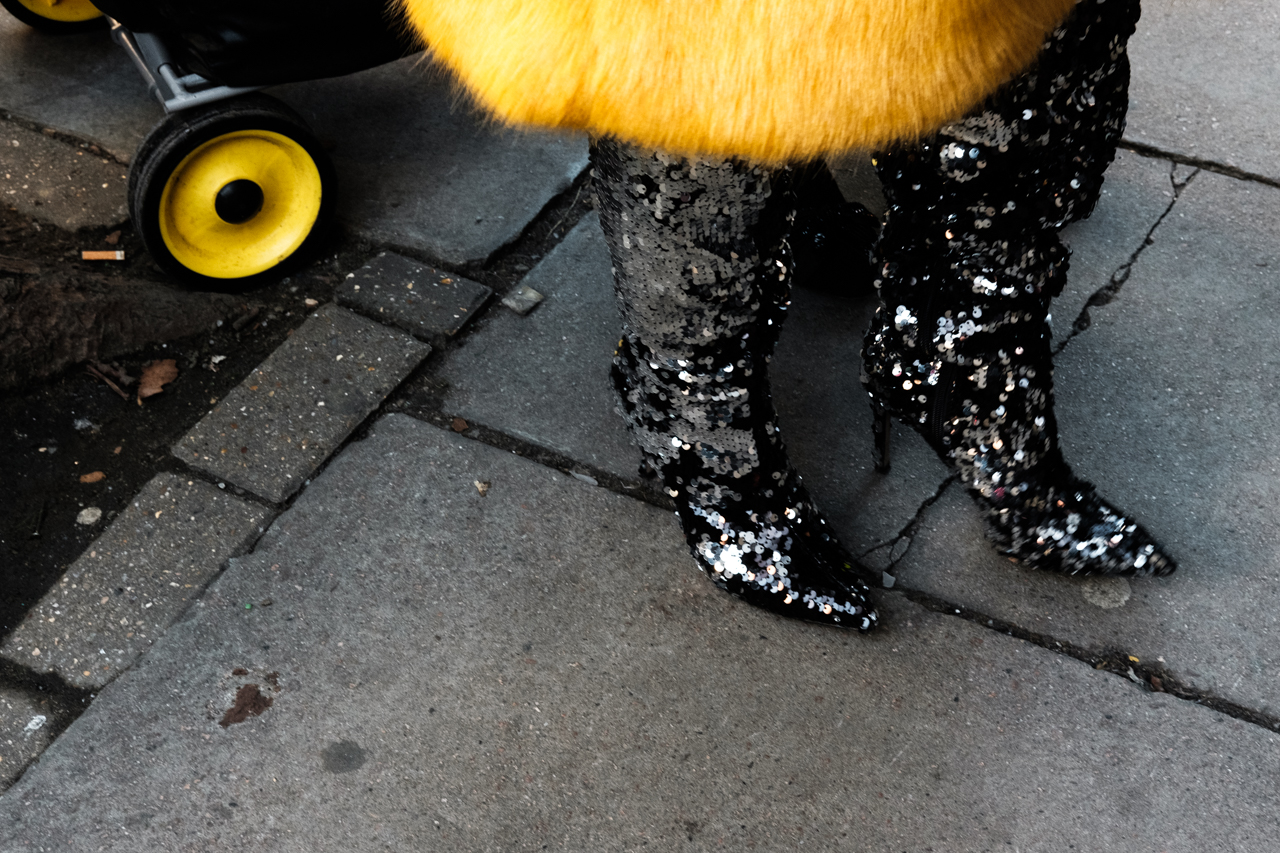
2. TO BE ETHICAL OR NOT TO BE ETHICAL
The actual law is something we as a society agree to abide by (for the most part), but your ethics are your own personal laws that inform your behaviour. Ultimately you have to answer to yourself! We are all very different in this respect, and empathy (or lack of it) will play a huge part in how we create our own set of personal laws.
Photographing Vulnerable People
As a street photographer I won't photograph homeless people, because I don't know what their situation is, plus the street is their home, and I wouldn't walk into someone's house or peer through a window and start taking pictures. I feel it's both exploitative and disrespectful to take photos of identifiable homeless people begging (usually with the clichéd grainy black and white conversion) purely for likes on Instagram, even if the person doesn't object. They could be at such a low point in their life that being exploited one more time makes no difference to them, and that is heartbreaking.
If, however, I were doing a documentary project to raise awareness of the issue then I would do it collaboratively with the people in question. Take a look at the work of documentary photographer Suzanna Stein takes a very sensitive and collaborative approach to photographing the residents of Skid Row, and the late Jill Freedman would immerse herself in the communities she photographed, as she was drawn to people on the "fringes" of society.
Photographing Children
This is understandably a sensitive issue for some people, and I totally get the objection in terms of the fears of grooming or exploitation, and photographers (street or otherwise) have a responsibility to their subjects, children in particular, but I don't feel there should be a blanket ban on photographing children in public places — they are such a joyful and wonderful part of life, and if we stop photographing children at play then the only historical evidence of kids for future generations will be family photos, awkward school portraits, and selfies with bunny filters! Don't we owe it to history to show kids full of life in photographs? Look at all the wonderful images made by Helen Levitt, Jill Freedman and Vivian Maier.
It seems though that parents' attitudes to their kids being photographed varies from country to country (as well as of course individual to individual), for example fellow street photographer, Julia Coddington, and I spent an hour photographing children running around and playing in a small square in Rome in full view of their parents without their prior consent! Maybe being a woman makes it easier (I realise I listed the work of women photographers above), or simply more acceptable because women are perceived as non-predatory? (The advantages and disadvantages of being a women street photographer is a whole other discussion though eh!). I love photographing children, but I do try to photograph them so they are not identifiable (as much as possible), and I realise that I'm doing that more and more regardless of the age of the subjects of my photos...
In-Your-Face Photography
Bruce Gilden and Dougie Wallace appear to have no qualms about being confrontational in their approach, especially as they both have been known to use flash photography while getting into people's faces. I am really torn on this, because the results can be radical and dramatic making them really interesting to look at (you have to admit the work is compelling!), but at what cost to the subject's wellbeing? Should street photography be about getting "the shot by any means necessary"? Not for me personally. Again, your own ethics (and balls!) will drive you...
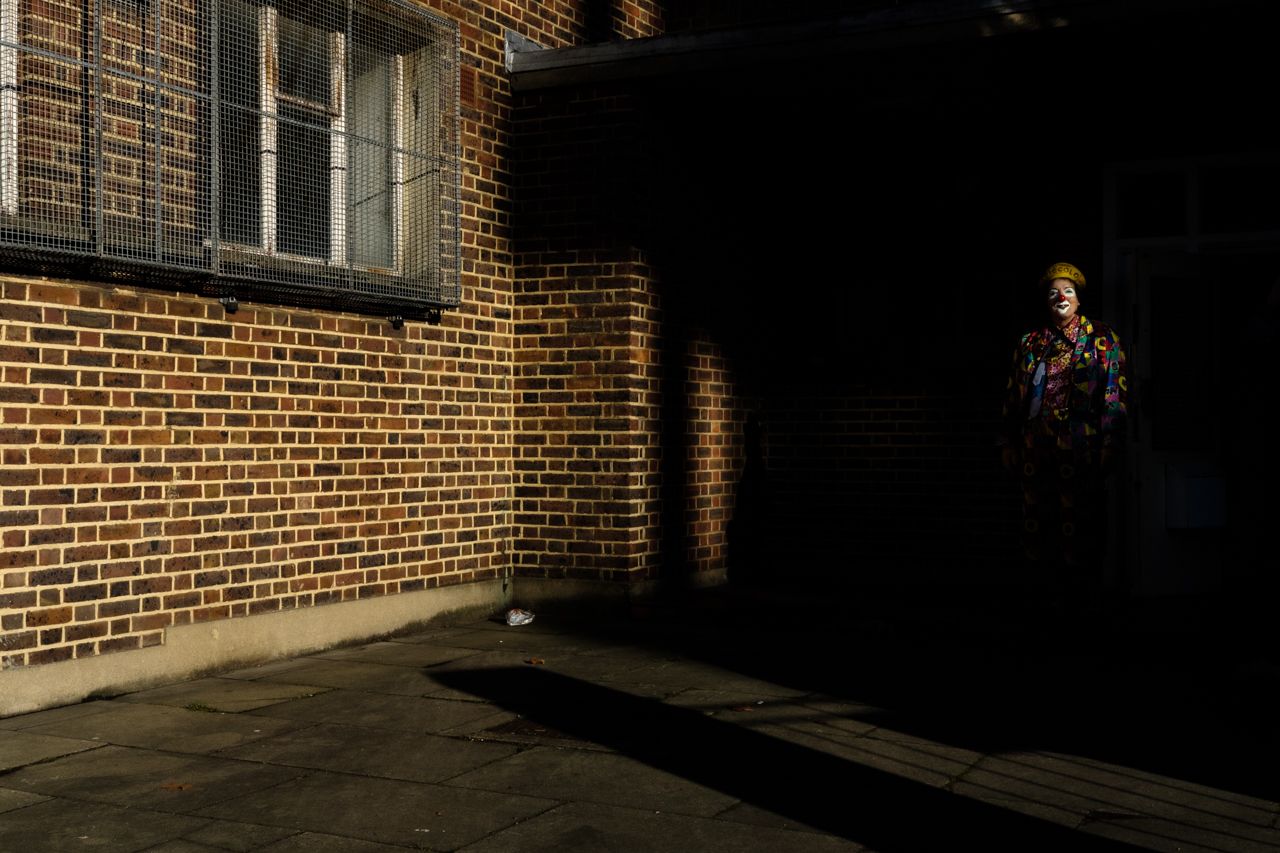
3. MY PERSONAL ETHICAL APPROACH
Right at the start of this piece I mentioned that not one single street photographer I know thinks they are doing anything wrong, and I have talked about personal ethics, which is born from empathy. I don't believe, or feel, I am doing anything wrong photographing people without their permission, and also without their knowledge, as I do my best not to interrupt the moment, because I want my photographs to be totally candid. But, I had to ask myself — why is it that someone like me, who is empathetic, who has a strong moral compass, who believes themselves to be both an ethical and kind person, can still think it is OK to take a photograph of someone else without their consent?
I gave this some thought, as I really wanted to understand what was going on in my own subconscious that make me feel totally fine about being a candid street photographer, when others find it somewhat wrong? Was there a glitch in my morals, a crack in my ethics? I asked my self a lot of questions and dug deep, and sat with this for a while so that I could answer this question for myself. And I concluded that for me this is twofold: it is about how I view the picture making process itself, and how I think about the approach I take, ie to go unnoticed (or as a critic might describe "to be sneaky"), is acceptable.
The Serendipitous Moment
I am not particularly motivated by the desire to document as such — for me street photography is a form of artistic expression as well as a problem-solving game, and an exercise in mindfulness, so when I am making street photography (and I'm using the term "making" deliberately, as opposed to "taking"), then I am working on creating harmony in the whole of my frame — the background, the foreground, the corners, the edges and of course the humans that form part of the overall picture. For me it is all about the entire image, so the person I have chosen, or who has crossed my path simply plays a part in the overall image. It's less about them as an individual and more about freezing moments in time that include people who happen to be in the exact same place at the exact same time as me! And this is fascinating to me — that serendipity placed us there, together, in those precise geographical co-ordinates to be in each others' fleeting sphere of existence, at a very precise moment! Isn’t that wild?! — "Of all the streets in all the towns in all the world, they walk into mine." It was simply meant to be! So I photographed it.
“I photograph to find out what something will look like photographed”. — Garry Winogrand
The approach
How many of us (non-celebrities) leave our homes in the morning asking ourselves “I wonder who is going to try and photograph me today?!” I’ll wager no-one, not even street photographers, although we are no doubt tuned into the possibility of someone trying to photograph us as our senses are heightened when we are out and about, and our observational skills allow us to read body language, especially the bodies that are carrying a camera.
I bet most people don't even think much about the CCTV that is constantly watching and recording us, I know I don't, because I'm unaware, therefore unbothered. So, if someone takes a photo of you and you don’t know, what is the difference to your life? It’s like that old philosophical question: if a tree falls in a forest and there’s no one to hear it — does it make a sound? I’d go one step further and ask — did it even fall? Is there even a tree? Or a forest?! Doesn't the same go for the subject of a street photograph: if you don’t know that a photo has been taken, has a photo even been made? Of course the street photographer has the photo, but if the subject remains oblivious then to them the photo does not exist!
Let's face it the problem arises if someone notices that they are being photographed, and as a result becomes distressed or feels harassed. That's why I feel OK about doing whatever I can do to go unnoticed, as aside from the desire to capture candid and undisturbed scenes, I also want my subjects to be undisturbed. I know some street photographers enjoy interacting with people after photographing them, as they feel it enriches their own practice and creates a connection with the person being photographed. For example street photographer Julie Hrudová recently wrote about it in an interesting article about her experience on Street Repeat. Check it out.
"Once the image is in the public stream-of-consciousness it belongs to the person viewing it and really leaves my grasp and its intentions." — Richard Koci Hernandez
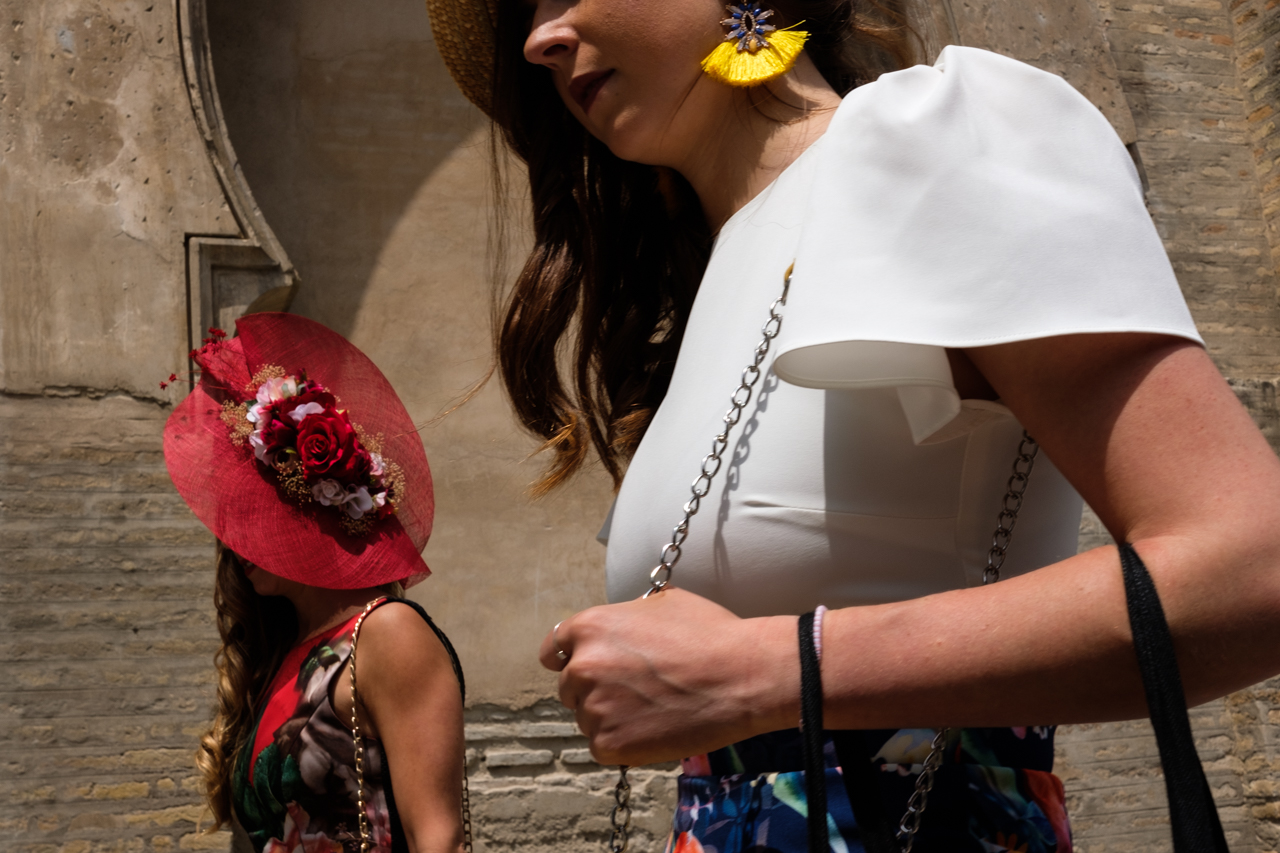
FINAL THOUGHTS
There will always be some street photographers out there who give street photography a bad name. The ones who argue that it's legal regardless of how upset someone feels, and the ones who stick a camera into someone's face to capture a shocked or angry or unflattering expression without a second thought to another human being's feelings... Sadly, there are bad apples in all baskets of life!
I believe as street photographers we have a responsibility to care about the person we are including in our photographs. As long as we are being kind, and as long as you are not exploiting the people we are photographing, what is really so wrong with street photography? To me there is so much right about it. It's documenting everyday life even though sometimes it's a very artistic impression; and it is creative and challenging and inspiring! Plus it's so accessible — you don't even need a "proper" camera, and you can just step out of your front door with your smartphone or your point-and-shoot...
In short — be a street photographer, but don't be a dick!
"I am a sort of spy." — Vivian Maier
Words and pictures © Polly Rusyn | All Rights Reserved

